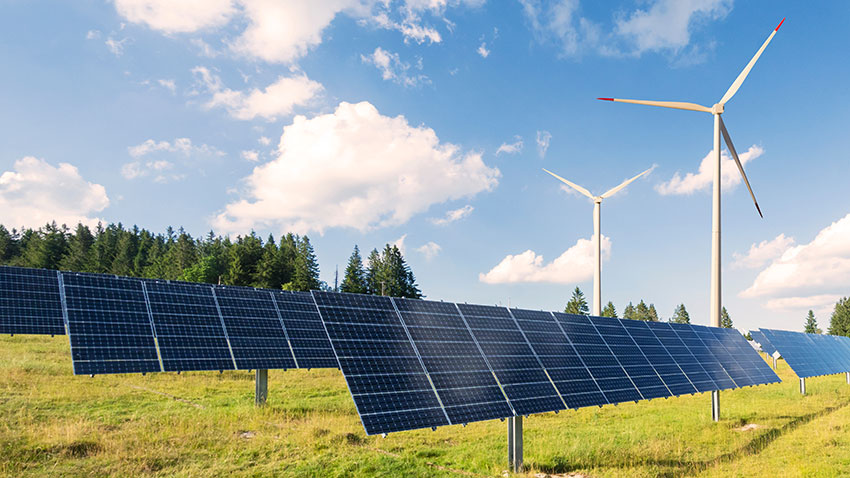Clean energy funds, once a darling of the mutual fund landscape, are poised for a resurgence as lower interest rates reignite investor interest.
After years of high premiums and growing demand driven by environmental, social and governance (ESG) concerns, the sector has faced headwinds from rising interest rates and falling energy prices. But now that the Bank of England has recently cut interest rates for the first time in more than four years and further cuts are expected in 2024, optimism is returning.
According to data from the Association of Investment Trusts, clean energy funds traded at significant premiums to their net asset value (NAV) in 2020. For example, Greencoat UK Wind, the largest clean energy investment trust, raised over £1 billion in 2020. equity in 2020 and 2021 almost a third of the stock market value. But today the fund and its peers are trading at a discount, reflecting the broader market’s withdrawal from the £15.5bn sector amid higher interest rates and softer energy prices.
James Wallace, analyst at Winterflood, believes the recent rate cuts could narrow these discounts, although it may take some time for the impact to fully materialize. “We believe these rate cuts will narrow this gap, at least somewhat in terms of discounts, due to the lower required returns demanded by these investors,” he said. However, Wallace warned that substantial cuts – possibly up to 75 basis points – may be needed to see a meaningful impact on valuations.
Still, questions remain about whether green energy funds can reclaim the high premiums of the past without a return to the ultra-low interest rates of pre-2020. Ben Newell, an analyst at Investec, noted: “It is possible that these companies trading at or around NAV, but unless you have the rates we saw before 2020, they won’t trade at 10 to 20 percent premiums. book value.”
The challenges are not limited to interest rates. London’s emerging battery storage sector, including funds such as Gresham House Energy Storage and Gore Street Energy Storage Fund, is facing criticism for volatile cash flows, with share prices trading between 45 and 55 percent below their intrinsic value. Unlike wind or solar, battery storage revenues depend on fluctuating wholesale energy prices, adding an extra layer of risk that investors have been reluctant to embrace.
Paul Mason, Chief Investment Officer at Harmony Energy, highlighted the unpredictability of battery asset revenues as a key factor in the current market discount. Recent falls in energy prices have put further pressure on these funds, causing some, such as Harmony and Gresham, to cancel their dividends for the year. Max Slade of Harmony Energy reflected on the lesson learned and said: “The lesson we learned is that taking an asset class that [an unpredictable] The income profile of sellers and promising a fixed level of dividends are not always feasible.”
Furthermore, declining enthusiasm for ESG strategies during economic recessions has impacted green infrastructure funds. Last year, ESG funds saw significant withdrawals from UK investors, although flows have improved this year. “During a cost of living crisis and when things are slowing down in the economy, the focus can be a little more on the economy and getting returns,” Wallace noted.
The recent decline in share prices below NAV has prevented renewable energy investment funds from raising new capital, limiting a vital source of financing for future projects. The Renewables Infrastructure Group (Trig), one of the largest trusts in the sector, has responded by carefully managing its balance sheet, including selling £210m of assets to reduce debt and fund new developments.
With the UK government setting ambitious targets to expand wind and solar energy capacity by the end of this decade, the role of private capital remains crucial. However, as Alex O’Cinneide, CEO of Gore Street Capital, noted, limiting access to capital poses a significant challenge: “There is a very big question about what this means in terms of a new government, in terms of building from – from our renewable energy infrastructure, that a key avenue for private capital to move into renewable energy in Britain is intrinsically closed.”
As the sector looks to recover, all eyes will be on further interest rate adjustments and their potential to revive investor confidence in the green energy space.

